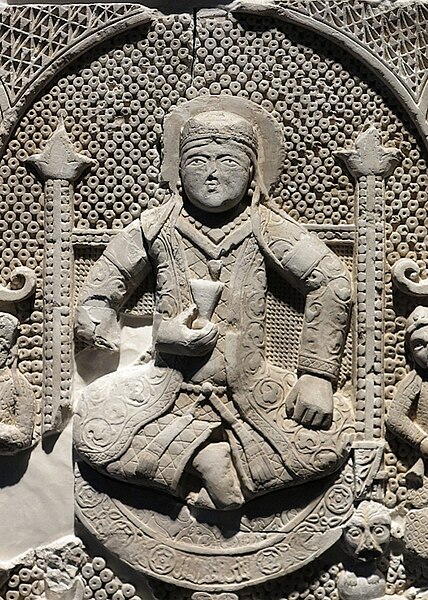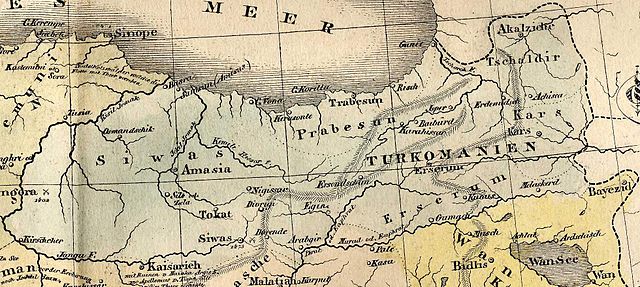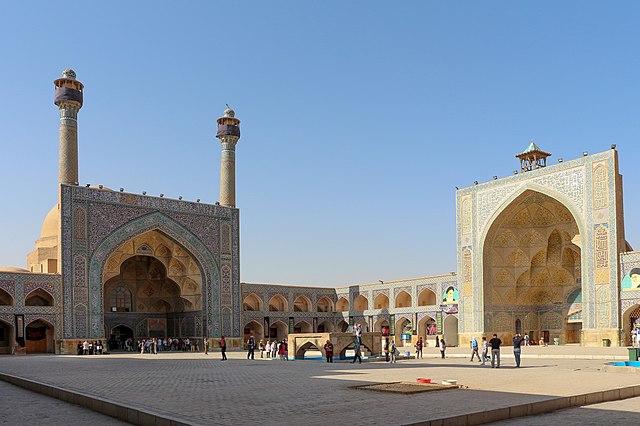The Qutb Shahi dynasty was a Persianate Shia Islamic dynasty of Turkoman origin that ruled the Sultanate of Golkonda in southern India. After the collapse of the Bahmani Sultanate, the Qutb Shahi dynasty was established in 1512 AD by Sultan-Quli Qutb-ul-Mulk, better known though less correctly referred to in English as "Quli Qutb Shah".
Tomb of Sultan Muhammad Qutb Shah in Hyderabad.
Wittelsbach-Graff Diamond first discovered by the Golconda sultanate
Golkonda Painting, 1650-1670 Opaque watercolor and gold on paper Overall
The Bahmani Kingdom, Kandesh, and the Five Sultanates
Turkoman, also known as Turcoman, was a term for the people of Oghuz Turkic origin, widely used during the Middle Ages. Oghuz Turks were a western Turkic people that, in the 8th century A.D, formed a tribal confederation in an area between the Aral and Caspian seas in Central Asia, and spoke the Oghuz branch of the Turkic language family.
Enthroned figure usually identified as the last Oghuz Turk Seljuk Empire ruler Tughril III (1176–1194), from Rayy, Iran. Philadelphia Museum of Art.
Turkomania of the Ottoman Empire
Medieval Qara Qoyunlu Turkmen helmet
Jameh Mosque of Isfahan, built during the Seljuq era (early 12th century)








